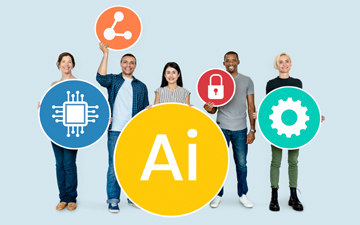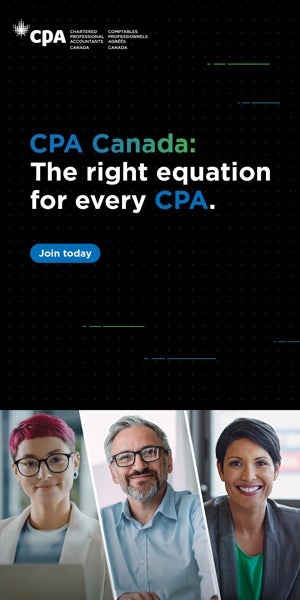5 Reasons Why Millennial CPAs Will Beat AI

Millennials are positioned to leverage artificial intelligence, says Bryce Welker
If you’re an up and coming accountant, you might be concerned about the role that artificial intelligence (AI) will play in reshaping the world of finance over the coming decades of your career. While the old guard might be able to put their feet up and coast to retirement without their jobs being rendered redundant, automation is a viable threat that could throw a spanner in the works for millennials in our profession.
The good news is that, while some naysayers might be predicting doom and gloom, early indications do not bear out this pessimistic outlook. Indeed, the world economy is projected to expand by $15.7 trillion thanks to AI by the time 2030 rolls around.
So what are the means by which millennial CPAs will be able to beat AI and what shape will the industry take as this technology becomes more prevalent?
1. Millennials CPAs Are Prepared
Perhaps the biggest reason that AI will not oust the upcoming generation of accountants is that they are not set to be blindsided by its arrival. Roughly a third of people in this age group have already received direct experience of working with AI and machine-learning platforms or at least have an understanding of what it involves.
The upshot is that millennial accountants are perfectly positioned to leverage the opportunities offered by AI rather than succumbing to its potential to replace them. There are still lots of questions about CPAs that newcomers might have but the anticipated role that AI will play is not one of them.
2. International Communication Is Key
 |
Bryce Welker, CPA, of CrushTheCPAExam.com. |
No accountant works in a vacuum and, for chartered professional accountants practising in Canada, it is often crucial to communicate with colleagues operating domestically as well as in the U.S. and further afield.
This level of communication and collaboration, as well as the training required to become a CPA in North America, is not something that can be emulated, equalled or outpaced by automation.
Working relationships established across borders and boundaries are what helps to keep the wheels of finance turning smoothly. Even if many decades down the line the impact of AI is more significant, millennial CPAs will have been given an entire career to learn and adapt accordingly.
3. Automation Is Already Here
What accountants and industry outsiders alike might not realize is that automation has already been embraced by the industry, doing away with the tedious manual processes that were a necessity in the pre-digital era. Computing hardware and software has made life simpler for accountants for decades and allowed them to become much more productive as a result.
This means that for millennial CPAs, the goal will not be to beat AI outright, but rather take control of it and harness it as a tool that brings them better results in the fulfilment of their professional responsibilities.
Machine-learning algorithms can automate everything from payment tracking to entire organizational workflows, so the practical and strategic benefits are obvious.
4. AI Is Expensive
When AI is talked about, it is usually framed in the context of its big business applications. Companies that have billions of dollars to throw at a problem will be quick to embrace automation, while those with fewer resources at their disposal should not have quite the same appetite for adoption.
This plays into the hands of millennial CPAs, since the expense associated with harnessing big data solutions with machine-learning capabilities will exclude all but the largest corporations from taking advantage. Meanwhile, the vast majority of clients in the small and medium-sized business segments will still have need of human bookkeepers for the foreseeable future.
5. Intuition Cannot Be Emulated
There are a lot of things that AI is good at; handling huge, unending streams of data without being entirely overwhelmed by the scale of the task is arguably chief amongst those assets. However, what we currently define as AI has a long way to go before it can be equated to the typical human definition of “intelligence.” There are even some who believe that a machine will never be able to truly be intelligent, even if it can do a very good impression of appearing to be so.
Meanwhile, the millennial CPAs and those that come after them will be able to use their intuition, common sense and social skills in combination with the training they receive and the experience they glean on the job to remain relevant, no matter how much AI encroaches on finance.
Bryce Welker is a Certified Public Accountant (CPA), Test Prep Expert, and CEO of multiple companies including CrushTheCPAExam.com. Image by rawpixel.com.











(0) Comments